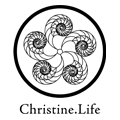
Health Benefits
Zinc is required for well over 300 enzyme functions, involved in 80 enzyme systems. Enzymes are the body’spark plugsgs (biological catalysts) that speed up the chemical reactions in the body of all living things.
Zinc enhances the ability of the liver to detoxify alcohols and is helpful for the general health of the body’s immune system.
Zinc facilitates the elimination of toxic metals from the body including arsenic, copper, cadmium and lead.
Zinc is essential for good neurotransmitter function in the brain.
Zinc is benificial for brain development, memory, concentration and proper sleep.
Zinc is a natural anti-viral, anti-bacterial and antidepressant.
Essential for reproductive health.
Zinc is essential for the development of the reproductive organs, sexual development, balances hormone production. A deficiency in Zinc may produce Hypogonadism. Hypogonadism is when the sex glands produce little or no hormones. In men, these glands (gonads) are the testes and in women, they are the ovaries.
Women:
Adequate zinc in women is essential for premenstrual syndrome (PMS) preconception, pregnancy, preventing morning sickness, birth defects, cervical dysplasia and preeclampsia.
Men:
Zinc may improve sexual performance (it may increase the intensity of orgasm in men).
This mineral is essentail for semen health as zinc is concentrates in the male Semen (each male ejaculation contains approximately 15 mg of Zinc). Zinc improves sperm count and prevents impotence and sterility.
It is essential for the health of the prostrate gland and manufacture of the male hormones and development of the genital organs. A deficiency in zinc may produce prostatitis, atrophy of testes and an enlarged prostate.
Zinc is necessary for healthy bones and proper digestion of proteins and carbohydrates.
Zinc is vital for children’s development of bones and teeth. It is also beneficial for healthy skin, hair and nails. It may improve athletic performance; increase the body’s basal metabolism and overall stamina.
Zinc eliminates cholesterol deposits, regulates insulin in the blood and helps treat alcoholism.
A deficiency of zinc may result in the loss of the senses, taste and smell, cause fingernails to develop white spots, peel and become thin. Another sign of deficiency is body odor, foot odor and halitosis (bad breath).
Zinc must be obtained daily from the diet as the body is unable to make enough!
The Zinc Tally Test or Taste Test is an easy convenient way for your ‘health practitioner’ to monitor your body’s zinc levels to see if supplementation is necessary!
If prescribed a zinc supplement it is recommended that you take this on an empty stomach preferably before bed.
Therapeutic Uses
Poor immunity, depressed immunity, AIDS, viral and bacterial infections, cold and flu, glandular fever, candida albicans (thrush), cancer, aging, age related hearing loss, tinnitus, impaired wound healing, atherosclerosis, celiac disease, Crohn's disease, heartburn, peptic ulcers, gastric ulcers, intestinal permeability, intestinal parasites, herpes simplex virus type 1, hepatitis C, inflammation, growth disorders, developmental disorders, learning disorders, poor memory, poor concentration, depression, major depression, paranoia, apathy, moodiness, lethargy, anxiety, ADHD, chronic fatigue syndrome, schizophrenia, loss of appetite, anorexia nervosa, bulimia, amnesia, growth failure, growth retardation, hypogonadism, pregnancy, cervical dysplasia, impotence, sterility, male impotence, enlarged prostate, prostatitis, sexual performance, atrophy of testes, sperm count, semen health, birth defects, morning sickness, preeclampsia, sleep problems, hypercholesterolemia, pancreatitis, diabetes, diabetic neuropathy, alcoholism, alcohol withdrawal syndrome, cirrhosis, arthritis, rheumatoid arthritis, psoriatic arthritis, osteoarthritis, loss of smell and taste, brittle nails, white spots on nails, alopecia, dermatitis, dandruff, skin disorders – acne, boils, dry skin, dermatitis, red flaky skin at side of nose, psoriasis, rosacea, tinea, warts, cadmium and copper toxicity, cirrhosis, renal disease, Crohn’s disease, Down's syndrome, autism, dyslexia, epilepsy, cystic fibrosis, infertility, asthma, emphysema, respiratory tract infections, pharyngitis (sore throat), pneumonia, tonsillitis, pregnancy, toxemia of pregnancy, pica, premature infants, hyper-prolactemia (abnormally-high levels of prolactin in the blood), hearing loss and night blindness, athletic training, exercise performance, muscle strength, night muscle cramps, fibromyalgia, Parkinson’s disease, hypothyroidism, insulin resistance, nocturnal enuresis (bedwetting), male dribble incontinence, age-related macular degeneration (armd), cataracts, hair loss, alopecia, male pattern baldness, oral health – tooth decay, gingivitis, periodontal disease, mouth ulcers.
Antagonists: Alcohol, pregnancy, oral contraceptives (OCP), progesterone, oestrogen, steroids, penicillin, air pollution, increased fatigue, endurance exercise, milling of flour loses up to 80%, surgery, excess iron and copper intake.
Note: Zinc competes with calcium and iron for absorption. Excessive calcium intakes impair zinc absorption.
Dietary Sources
Fruits
- Banana
- Bilberry
Starch Foods
- Grains
- Sprouted grains
- Oats
- Rye
- Buckwheat
- Wheat
- Legumes
- Butter beans
- Broad beans
- Peas – green
- Lentils
Other
- Yeast
- Brewers yeast
- Stevia
- Olive oil
Vegetables
- Green leafy veggies
- Olives
- Garlic
- Kelp
- Onion
- Ginger
- Fennel
- Turnip
- Potato
- Carrot
- Cauliflower
- Spinach
- Cabbage
- Green peas
- Parsley
- Basil
Protein Foods
- Seeds
- Pumpkin seeds
- Sunflower seeds
- Chia seeds
- Linseeds
- Nuts
- Almonds
- Brazil nuts
- Pecan nuts
- Hazelnuts
- Pine nuts
- Cashew nuts
- Chestnuts
- Macadamia nuts
- Peanuts
- Pistachio nuts
- Walnuts
- Chicken
- Lamb
- Beef
- Pork
- Egg yolk
- Milk
- Butter
- Cheese – hard
- Cheese – blue vein
- Oysters
- Prawns
- Fish
- Oysters
- Sardines
- Anchovies
- Haddock
- Tuna
Herbal Source
- Watercress
- Ginger
- Burdock
- Chamomile
- Chickweed
- Dandelion
- Echinacea
- Equisetum
- Eyebright
- Feverfew
- Goldenseal
- Hawthorn
- Pau D’Arco
- Peppermint
- Ribwort
- Sarsaparilla
- Stevia
- Suma
- Parsley
A Guide to Minerals Found Naturally in Food
Categories
- Allergies
- Blood Sugar Maintenance
- Cardiovascular Health
- Children’s Health
- Cognitive Health
- Dental Health
- Digestive Health
- Ear Health
- Eye Health
- Hair Health
- Immune System
- Joint Health & Musculoskeletal
- Kidney & Bladder Health
- Liver & Detoxification Support
- Men’s Health
- Mental Health
- Food
- Nail Health
- Nervous System
- Other Conditions
- Pregnancy Health
- Reproductive Health
- Respiratory Health
- Skin Health
- Women's Health
Highlighted

Anxiety

Birth – Labour

Immune Booster

